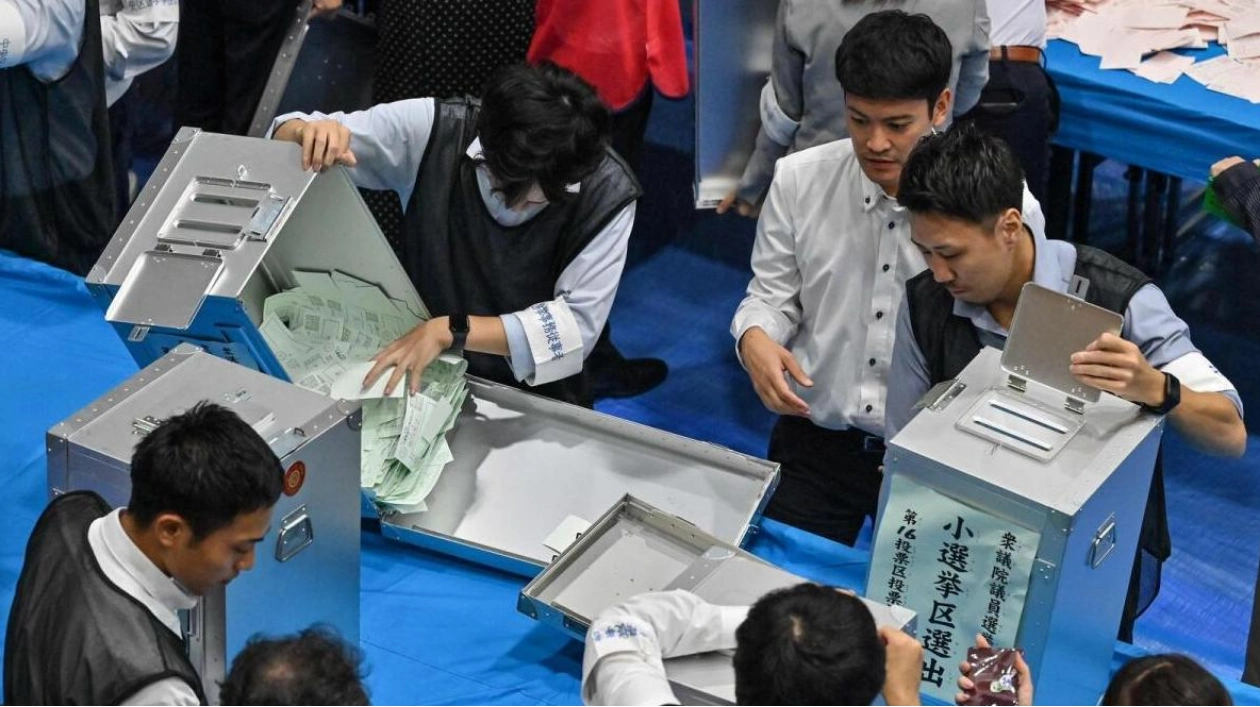Officials from the election administration committee opened ballot boxes to count the votes for Japan's general election in Tokyo on Sunday, as reported by AFP.
Japan's ruling Liberal Democratic Party (LDP) fell short of securing a majority in the snap elections on Sunday, a projection by national broadcaster NHK revealed, marking a significant setback for new Prime Minister Shigeru Ishiba. It remains uncertain whether Ishiba's LDP, in coalition with the Komeito party, will be able to achieve a parliamentary majority. Ishiba, 67, assumed office on October 1 after narrowly winning the LDP leadership election last month and promptly called for snap elections. Known for his passion for defense and model planes, Ishiba aimed for the coalition to win a majority in the election. Failing to meet this goal could severely weaken his standing within the LDP and necessitate forming alliances with other parties or leading a minority government.
Voters in the world's fourth-largest economy have been discontented with rising prices and the fallout from a party slush fund scandal that led to the downfall of former Prime Minister Fumio Kishida. NHK projected that the LDP would secure between 153 and 219 seats, falling short of the 233 seats required for a majority in the 465-seat parliament. Combined with Komeito's projected 21 to 35 seats, the coalition would hold between 174 and 254 seats. The Constitutional Democratic Party (CDP), led by former Prime Minister Yoshihiko Noda, is projected to win between 128 and 191 seats, up from 96.
If these projections are confirmed, the LDP's loss of majority would be its worst performance since losing power 15 years ago. In the previous general election in 2021, the LDP won a majority with 259 seats in the lower house, while Komeito held 32. Pre-election opinion polls indicated that the LDP would fall short of a majority, and the ruling coalition might also end up short. Ishiba has promised to revitalize rural areas and address Japan's declining population through family-friendly policies like flexible working hours. However, he has softened his stance on allowing married couples to have separate surnames and appointed only two women as cabinet ministers. Ishiba supports the formation of a regional military alliance akin to NATO to counter China, though he acknowledges it would not materialize quickly.
The LDP, one of the most successful democratic parties globally, has been in power for all but four of the last 69 years. In 1993, the LDP lost power for the first time after Japan's 1980s asset bubble burst and a corruption scandal. It was last out of power between 2009 and 2012 when the centre-left CDP took over for three tumultuous years, including managing the 2011 Fukushima nuclear disaster.
Source link: https://www.khaleejtimes.com






